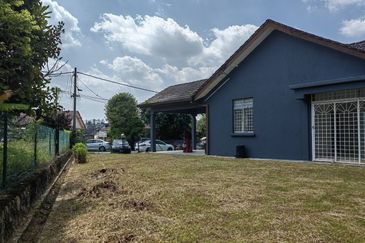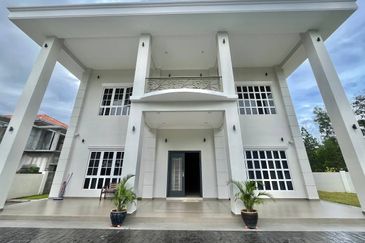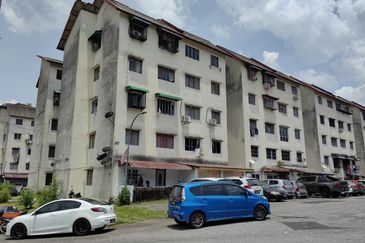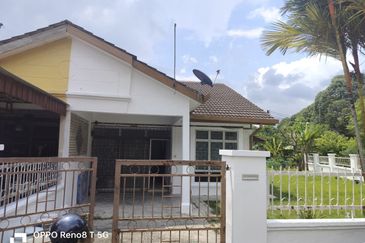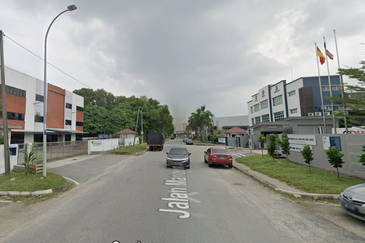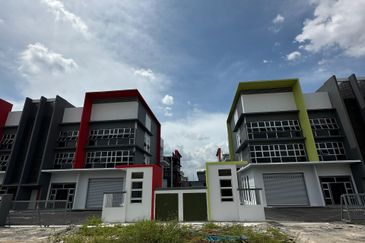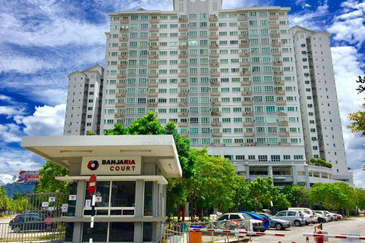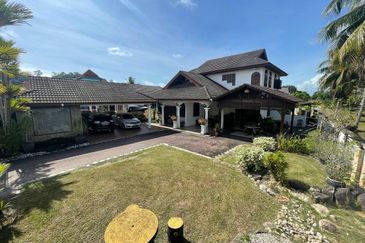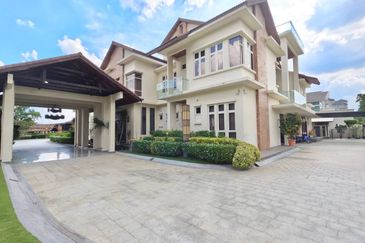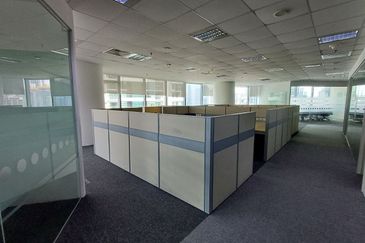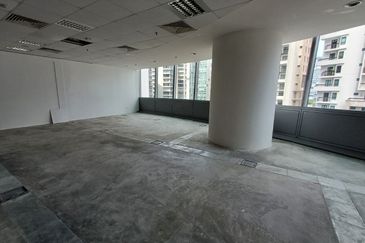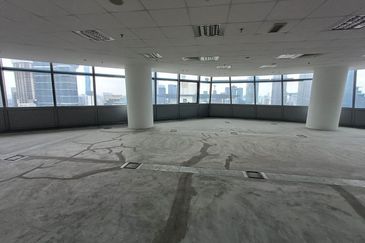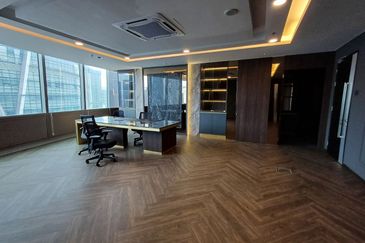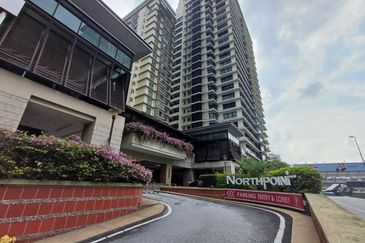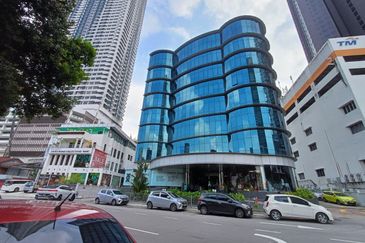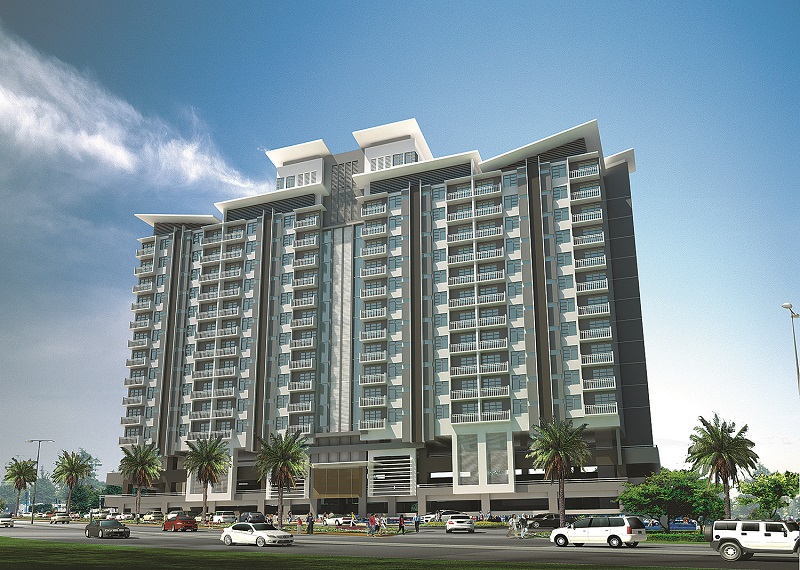
AT a time when property developers are getting cautious, Meda Inc Bhd is betting all its chips on one item — an RM180 million land acquisition that is projected to generate a gross development value of RM881.9 million.
With a market capitalisation of only RM282.6 million and little cash in its coffers, the group is planning to dispose of several key property investments to fund the development. In fact, Meda also had to walk away from a smaller land acquisition at the cost of a 10% deposit.
“There is some risk to take on this project, but the returns are very good. We are aware of the uncertainties in the property market, but we are also encouraged by the fact that some projects in the Klang Valley are still seeing good take-up rates,” explains chief operations officer Carter An.
“The management has discussed this at length and decided that disposing of our underperforming assets to take on this project would be the best option for our shareholders.”
To recap, Meda last month announced that it was acquiring a 4.18-acre parcel in Jalan Satu, Chan Sow Lin, Kuala Lumpur, for RM180 million. The land is held under BCM Holdings Sdn Bhd, and Meda will be buying the company from Tan You Tiong and Yeok Siok Choo.
This is a hefty sum for a company that had only RM5.19 million in cash in its books against RM68.38 billion in debts as at March 31.
 On top of that, Meda has been loss-making and suffering from negative net cash flows. It posted a loss of RM2.2 million in the first quarter this year while recording a RM2.4 million outflow in cash.
On top of that, Meda has been loss-making and suffering from negative net cash flows. It posted a loss of RM2.2 million in the first quarter this year while recording a RM2.4 million outflow in cash.
So, how can it hope to take on such a big project?
For starters, the payment terms for the land are quite favourable to the developer.
“We have managed to secure good payment terms for the land. We will pay RM40 million via shares. That leaves about RM140 million in cash. Of that amount, we only need to pay RM50 million by the completion date [of the transaction]. As for the balance of RM86.2 million, we have 24 months to settle it,” says An.
However, the real linchpin of the deal is the sale of the group’s shopping mall, hotel and car park to Meda’s major shareholders and directors for a total consideration of RM77.87 million.
To recap, Meda, through its wholly-owned subsidiary ZKP Development Sdn Bhd, owns The Summit Bukit Mertajam mall in Penang, along with a hotel and car park. The group plans to sell ZKP to Casa Andaman Sdn Bhd, which is collectively 70% controlled by managing director Datuk Teoh Seng Kian and director Teoh Seng Aun. The Teoh brothers are also major shareholders of Meda, with a deemed interest of 25.8% collectively.
Compared to the group’s original investment cost of RM47 million, Casa Andaman will acquire ZKP for RM10.3 million. However, as part of the conditions of the sale, Casa Andaman will also have to settle RM67.57 million in inter-company debt owed to Meda. This brings the total consideration of the disposal to RM77.87 million.
“Although the assets were sold to related parties, we (Meda) got a good price for it. We are selling it at book value, so we won’t recognise a gain or loss on disposal,” says An.
He also points out that ZKP had been underperforming for several years due to declining tenancy rates in the mall.
“ZKP hasn’t really been contributing in a big way to the group. We would have needed to inject more capital into ZKP for refurbishment to revive it. Keep in mind that this mall was built in 1997. Based on the returns we were going to get, we were just not prepared to invest more money into it,” he says.
At the same time, Meda called off the acquisition of a 9.7-acre parcel in Kajang, Selangor, which would have cost it RM31.69 million. The deal had been in the works since last year, and walking away cost the company its RM3.17 million deposit, which is no small sum for the loss-making company.
“We considered undertaking both projects (in Chan Sow Lin and Kajang), but ultimately, management decided to focus on just one. After all, the Chan Sow Lin land is closer to the city centre and [the development will be] easier to market under the current environment,” says An.
To further lighten its balance sheet, it is also understood that Meda has plans to dispose of its recently acquired land in Tanjong Kling, Melaka, which was bought for RM23.1 million. The 20-acre parcel was acquired last October and has a RM16 million debt charged to it, by Malaysia Building Society Bhd (MBSB), with an interest rate of 8% per annum.
“As you may know, it is tough to get financing these days. But we can still get it. We opted for MBSB because we have a good relationship with them. While 8% interest is not cheap, it is not too expensive either,” says An.
Meda is also looking to dispose of 576.25 acres of freehold and leasehold plantation land in Kuala Linggi, Melaka. The tract is valued at RM72.45 million in the group’s books, but could probably fetch more if market conditions are favourable. It is currently an orchard and its yield is very low  because Meda did not invest much in it, says An.
because Meda did not invest much in it, says An.
Put them all together and Meda’s net gearing could actually decrease from the 0.3 times currently to around 0.12 times (see table). However, this doesn’t do much to improve its cash flow.
The group has two ongoing residential projects — Scott Towers in Johor Baru, which is 85% completed, and Phase 1 of Westlake View in Sungai Siput, Perak, which is near completion.
The projects are already contributing to the group’s earnings at this point and if the recent financials are anything to go by, it simply isn’t enough.
Nonetheless, An is confident that with careful planning, Meda will be able to manage its cash flow and develop the Chan Sow Lin land.
That said, the final decision will only be reached at a soon-to-be-announced extraordinary general meeting, where shareholders will have to vote on the proposed exercises.
This article first appeared in the digitaledge Weekly on Aug 10, 2015. Subscribe here.
TOP PICKS BY EDGEPROP
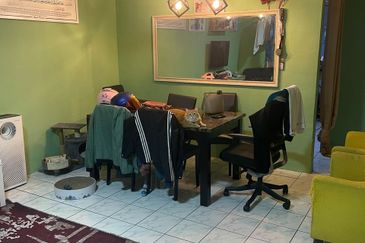
Pangsapuri Baiduri, Bandar Tasik Kesuma
Beranang, Selangor
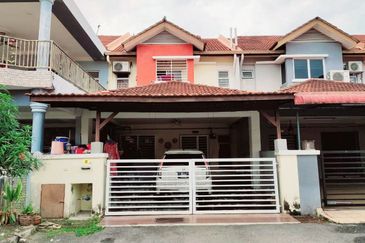
Park Residence Springhill
Port Dickson, Negeri Sembilan
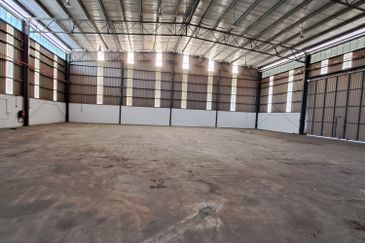
Taman Perindustrian Putra Puchong
Puchong, Selangor


